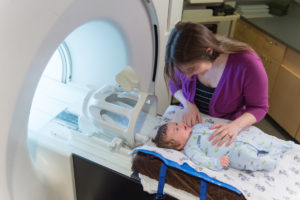In addition, negative effects from separation can reverberate into adolescence and adulthood, Poehlmann-Tynan says. Children with incarcerated parents are more likely to develop behavioral and academic issues, increased risk of drug and alcohol abuse, and long-term health issues.
Yet a few small changes in policy can have overwhelmingly positive impacts on children. For example, ensuring that children have strong, stable supports in their communities – whether it’s a coach, teacher or friend – is a significant protective factor. Regular visits between children and their incarcerated parents, especially face-to-face contact, are also helpful for children.
Like children with incarcerated parents, children separated from their parents at the border experience a sudden, traumatic separation from their parents or primary caregiver.
“When the constant dread of arrest, detention or deportation of parents culminates in actual family separation – whether short-lived or permanent – the results are particularly harmful and far-reaching for children’s well-being,” she says.
And instability in immigrant families is likely a familiar experience. Many immigrant families come from countries where they experienced war, famine, poor medical care and other traumatic experiences. As a result, children from immigrant families have experienced a wide range of traumas before being separated from their parents – all of which undoubtedly have negative impacts on their overall well-being.
To minimize harm to kids, Poehlmann-Tynan and other experts say it’s important to reunify families, as well as develop culturally-sensitive mental health services for the separated families.
-Brita Larson







